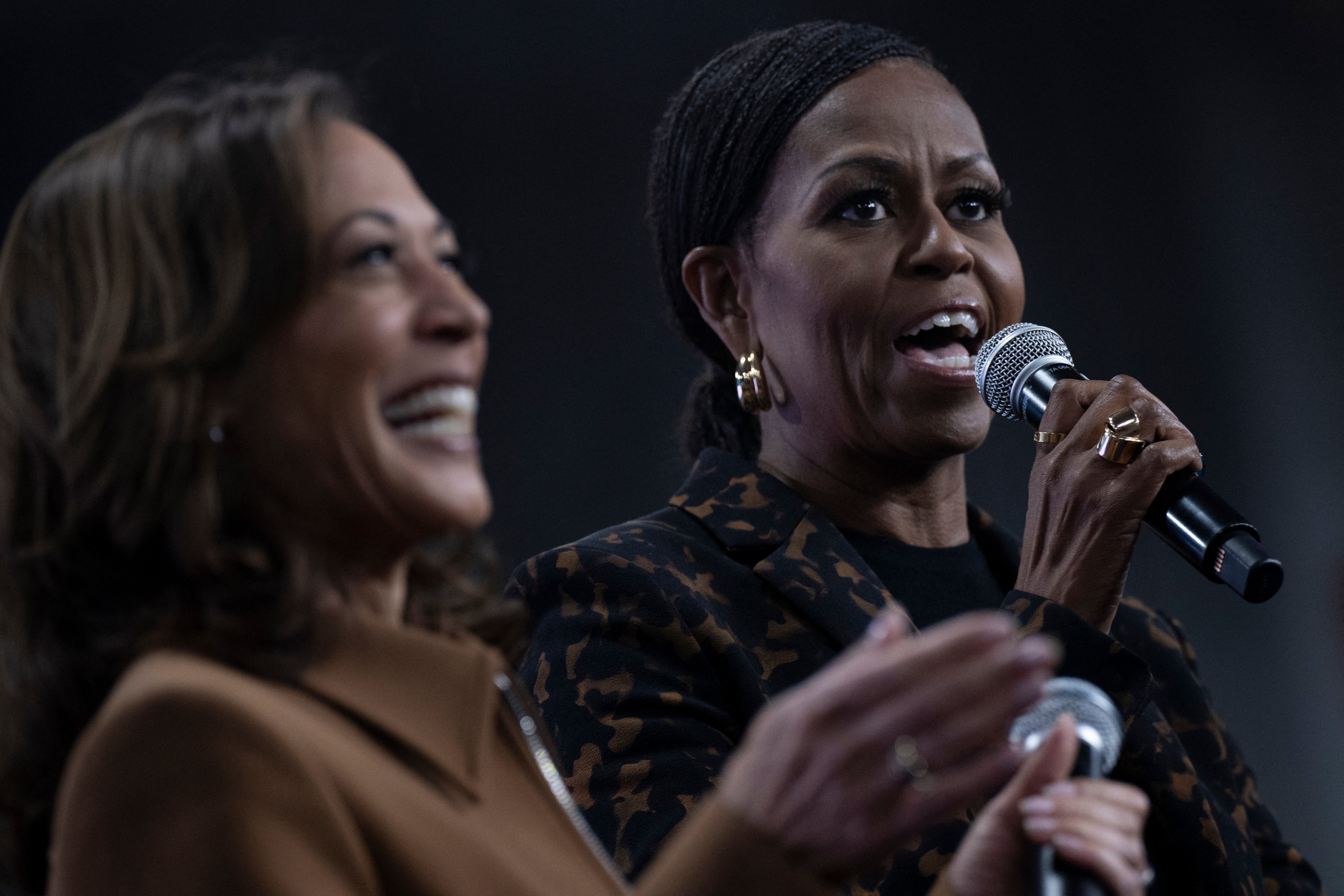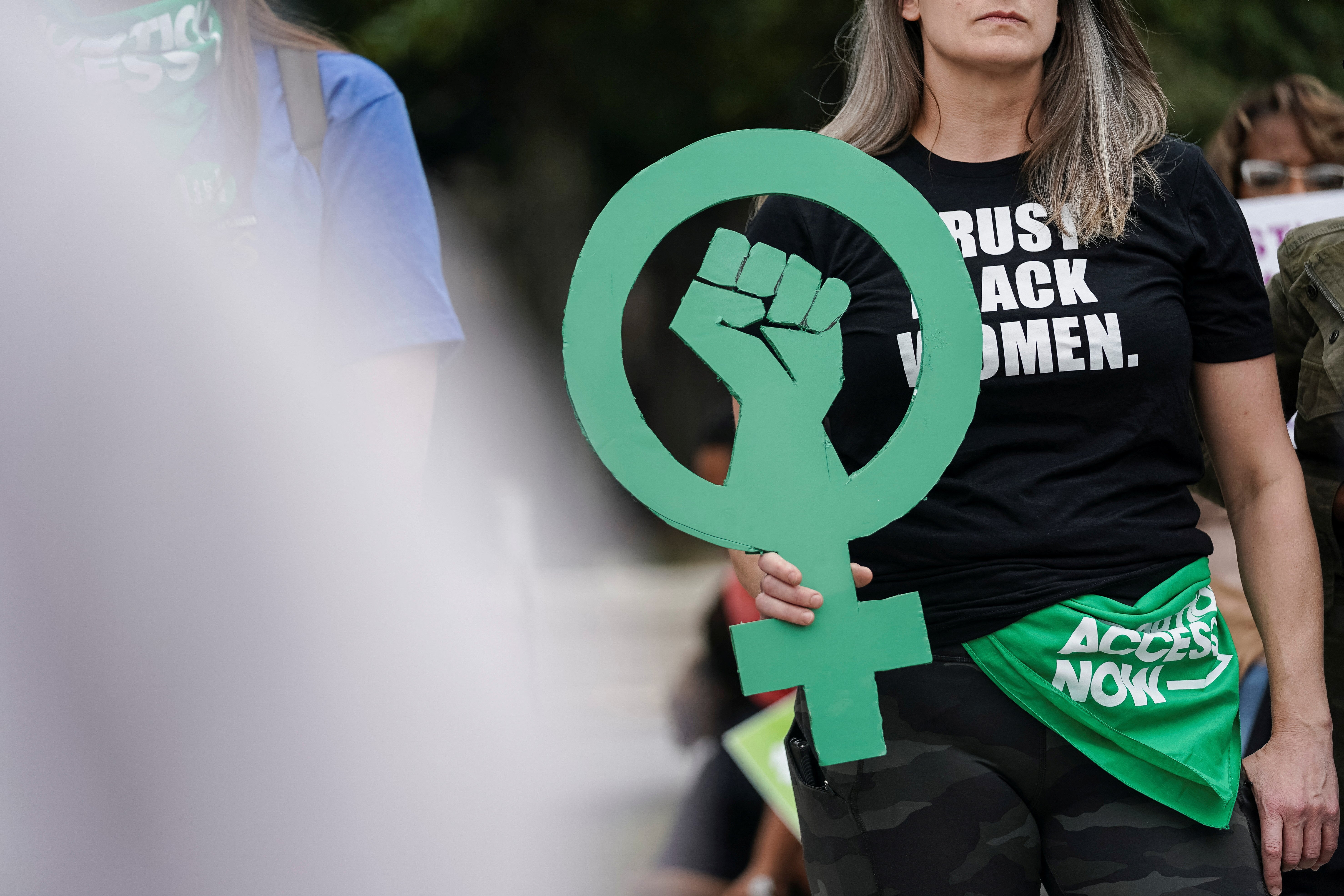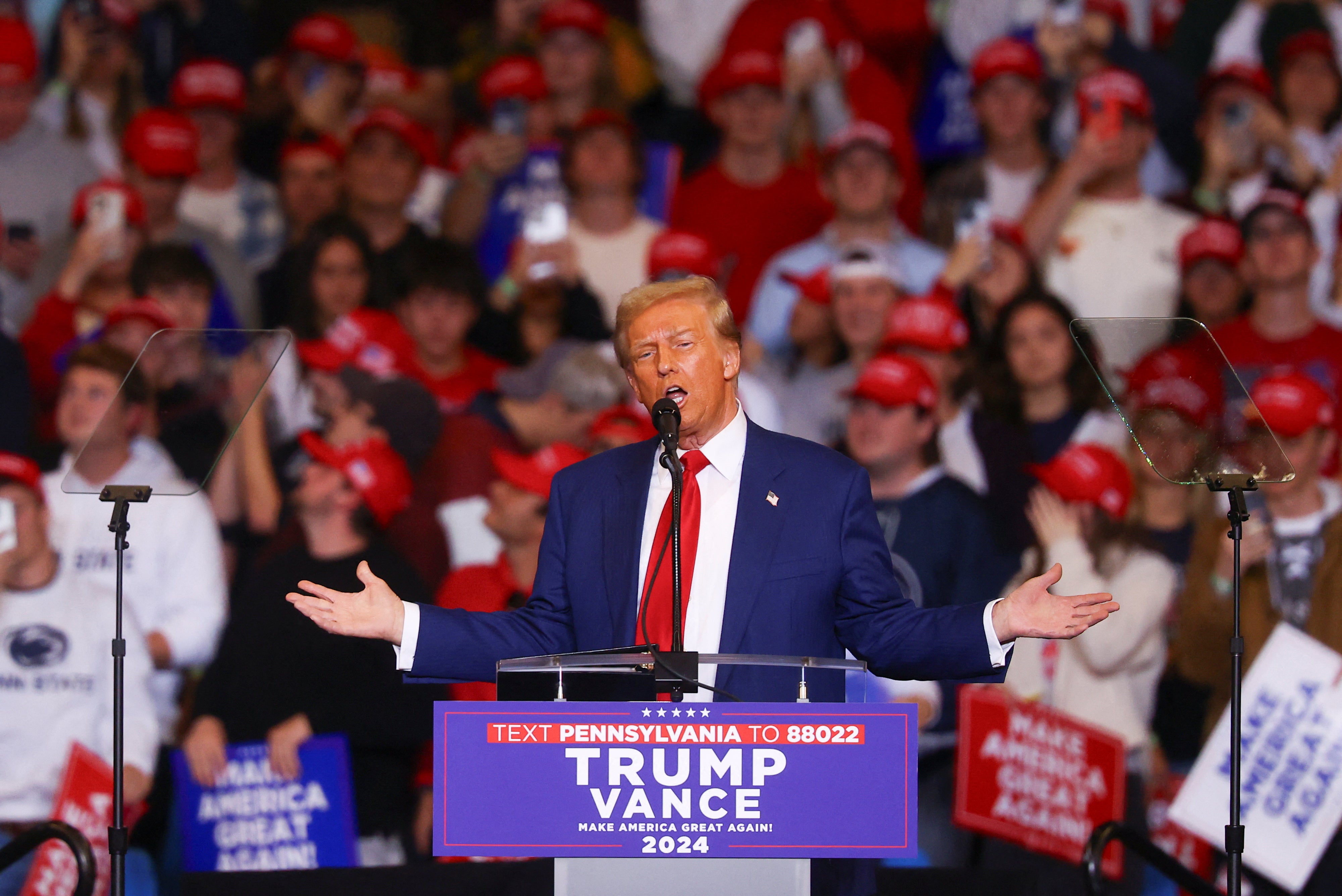With just over a week left before Election Day, a historic gender gap is emerging that may decide whether Donald Trump or Kamala Harris wins the White House.
Recent national polling has noted that women decisively backed the vice president 53 percent to 36 over her Republican rival.
The figures are an almost exact mirror image when it comes to men, who support Trump 53 percent to 36 percent over Harris.
If such margins hold until Election Day, it would be the biggest disparity since a gender gap emerged more than four decades ago, in 1980, according to USA Today/ Suffolk University, which carried out the survey.
In recent months, the campaigns have increasingly been defined by two major issues voters are considering when casting their ballots in 2024 — abortion rights and the economy — which are historically gender-based.
Harris has directed much of her energy at recent events on reproductive rights, including an appearance with music star Beyonce in Houston, Texas on Friday for a rally that focused specifically on the issue.
On Saturday, former First Lady Michelle Obama joined the vice president to emphasize Trump’s threats to women’s healthcare, making an urgent appeal directly to male voters.
“If your wife is shivering and bleeding on the operating room table during a routine delivery gone bad, her pressure dropping as she loses more and more blood, or some unforeseen infection spreads and her doctors aren’t sure if they can act, you will be the one praying that it’s not too late,” Obama said in her 40-minute remarks from Michigan.
“You will be the one pleading for somebody, anybody, to do something,” he added.
If voters don’t “get this election right,” she added, “your wife, your daughter, your mother, we as women, will become collateral damage to your rage.”

Conversely, Trump has long sold himself as a champion for the US economy, claiming that under his leadership it was the strongest “in the history of America.”
Men and women alike volunteer that the economy and inflation are the most important issues this year, though men rank it higher, at 34 percent compared with 26 percent for women, according to the USA Today/Suffolk survey.
Perhaps unsurprisingly, women rate abortion access and women’s rights as a strong second in order of importance, at 17 percent. Men rank the same issues seventh in order of importance, at 2 percent.

With nine days now to go before polls close, such gender-based opinion splits may make crucial differences in key swing states.
In Quinnipiac polls conducted in five of the seven key swing states throughout October, Harris had a significant lead among women, while Trump saw a comparable advantage among men in those same places.
A late October Quinnipiac survey of Michigan voters found 57 percent of women in the state backed Harris, while 40 percent of men did the same. Conversely, 56 percent of men backed Trump, compared to just 37 percent of women.
“It’s the battle of the sexes, and it’s no game,” Quinnipiac pollster Tim Malloy said in a statement. “There is a glaring gap in Michigan and Wisconsin between the number of women supporting Harris and the number of men supporting Trump.”
In Michigan, on the topic of abortion specifically, 56 percent of women backed Harris, and 37 percent Trump. In Wisconsin, 54 percent backed Harris, and 40 percent went for Trump.
Additionally, the gender gap has become significant among Latino and Black voters as well as white voters.
According to recent polls, Democratic candidates appear to be losing support among groups on which they have typically have relied, ncluding Black men and Latino men.
In a USA Today/Suffolk University poll of Latino voters in the swing state of Arizona, women supported Harris by 68 percent to 28 percent, while men backed Trump by a much narrower margin of 48 percent to 46 percent.

A similar trend was seen by polls in Nevada, another swing state. The USA Today/Suffolk poll of Latino voters showed women supporting Harris by 39 points (68 per cent to 29 percent) while men backed Trump by six points (50 percent to 44 percent).
Black voters largely continue to support Democrats, according to the survey, but Trump has made inroads among Black men — something previously controversially noted by former president Barack Obama.
A separate poll from The New York Times/Siena College this month revealed that 78 percent of Black voters nationwide support Harris — a figure that is 12 points lower than what Biden received in 2020.
In a USA TODAY/Suffolk poll of Black voters in Michigan, women supported Harris by 72 points. But 13 percent of Black men supported Trump, reducing Harris’ advantage to 53 points.







